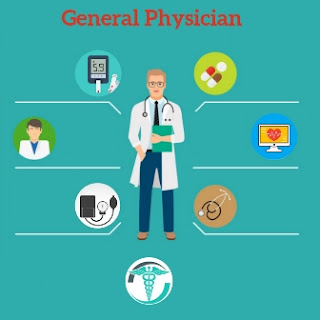ECG Test Is So Necessary For Your Heart Why?
ECG Test well, your doctor may suggest you
get an electrocardiogram -- also called an EKG or ECG -- to see for signs of a
heart condition. It is a test that records the electrical activity of your
ticker through small electrode patches that a technician attaches to the skin
of your chest, arms, and legs.
ECGs are quick, safe, and painless. With
this test, your doctor is going to be able to:
Check your cardiac rhythm
See if you've got poor blood flow to your
cardiac muscle (this is named ischemia)
Diagnose an attack
Check on things that are abnormal, like
thickened cardiac muscle
Detect if there are significant electrolyte
abnormalities, like high potassium or high or low calcium.
How Should I Prepare?
Some belongings you can do to urge yourself
ready:
Avoid oily skin creams and lotions on the
day of the test because they will keep the electrodes from making contact
together with your skin.
Avoid full-length hosiery, because
electrodes got to be placed directly on your legs.
Wear a shirt that you simply can remove
easily to put the leads on your chest.
What Happens During an Electrocardiogram?
A technician will attach 10 electrodes with
adhesive pads to the skin of your chest, arms & legs. If you are a guy,
you'll get to have your chest hair shaved to permit a far better connection.
During the test, you'll lie flat while a
computer creates an image, on paper, of the electrical impulses that move
through your heart. this is often called a "resting" EKG, although an
equivalent test could also be wont to check your heart while you exercise.
It takes about 10 minutes to connect the
electrodes and complete the test, but the particular recording takes only a
couple of seconds.
Your doctor will keep your EKG patterns on
file in order that he can compare them to tests you get within the future.
Types of EKG Tests
Besides the quality EKG, your doctor may
recommend other kinds:
Holter monitor. it is a portable EKG that
checks the electrical activity of your heart for 1 to 2 days, 24-hours each
day. Your doctor may suggest it if he suspects you've got an abnormal cardiac
rhythm, you've got palpitations, or do not have enough blood flow to your
cardiac muscle.
Like the standard EKG, it's painless. The electrodes
from the monitor are taped to your skin. Once they're in situ, you'll head home
and do all of your normal activities except the shower. Your doctor will ask
you to stay a diary of what you probably did and any symptoms you notice.
Event monitor. Your doctor may suggest this
device if you simply get symptoms now then. once you push a button, it'll
record and store your heart's electrical activity for a couple of minutes.
you'll get to wear it for weeks or sometimes months.
Each time you notice symptoms, you ought to
attempt to get a reading on the monitor. the data is shipped on the phone to
your doctor, who will analyze it.
Signal-averaged electrocardiogram. It
checks to ascertain if you're at high risk of getting a condition called heart
arrhythmia, which may cause asystole. The test is completed in a similar way as
a typical EKG, but it uses sophisticated technology to research your risk.
Why You Choose Dr. Ratan Prakash?
For the appointment booking for ECG Test
please call us on this number 9430829175

Comments
Post a Comment